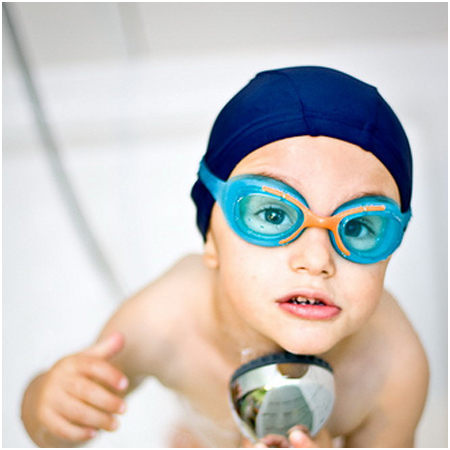These days, learning to swim is considered something of a standard and indeed mandatory part of any child’s upbringing and development. The benefits of swimming are common knowledge and it is extremely rare for any child not to be provided with swimming lessons from a relatively early age. However, regardless of a child’s swimming ability or lack thereof, it is of the utmost importance for parents to be aware of certain important safety tips for the wellbeing of their kids. Some are of course more obvious than others and most are simple common sense, but each and every one of them bears repeating and revisiting from time to time.

The following guide is therefore aimed at parents with kids of all ages who may be learning to swim who are or already proficient in the water.
Active Supervision Is Mandatory
Above all else, it is crucial to remember that active supervision is mandatory at all times when kids are in the water. This doesn’t simply mean being by the pool in order to help out as and when needed, but rather it means giving your kids your undivided attention and constant monitoring at all times. In terms of younger children, infants and toddlers, it is important that an adult remains no further away from the child than arm’s reach. This is precisely why it is never a good idea to attempt to balance supervised swimming with any other activities or tasks as you only need to take your attention away from what’s happening for a moment to risk an unfortunate incident.
Sharing Responsibility
While it is of course beneficial to have several parents or adults around while kids are in the water, it is crucial not to fall into a false sense of security. What often happens is that when there all the adults around, some adults instinctively assume that the other adults will be keeping their eye on things therefore they themselves do not have to watch things quite so closely. Of course, this has the potential to lead to a situation when none of the adults are really watching what is going on having assumed everybody else is covering things on their behalf. It is therefore a good idea to make sure the responsibility is shared equally by either designating people to take shifts or simply agreeing ahead of time to take responsibility for your own kids individually.
Take It Slow, Take Your Time
While it is true to say that it is technically never too early to introduce your kids to water, you need to make sure you take it slow and take your time. It is natural to be enthusiastic and to want your kids to progress as quickly as possible for their own benefit, but all kids of all ages progress at very different speeds. The key therefore is to introduce your kids to water slowly but surely over any given period of time, making sure that you have the best baby girls’ or baby boys’ costumes available for the specific age group.
Teach Safe Swimming Skills
Teaching and coaching kids in the art of proficient swimming is one thing, but above all else what matters is teaching kids safe swimming skills. There is a big difference between focusing on performance and technique for example, and simply concentrating on ensuring that they are 100% safe in the water. It generally isn’t until a child is fully confident in their own safety in the water that they can give their full attention to improving things like technique. So above all else, communicating the importance of safe swimming is of the utmost importance.
Don’t Rely on Swimming Aids
Swimming aids like float suits, water wings and rubber rings can be incredibly helpful and can certainly bolster safety, though should at no times be relied on or considered flawless. They are simply there to help out and help improve safety though should never be used to replace full supervision and any other approved flotation devices.
Make Sure You Know CPR
Last but not least, while it may seem rather drastic and indeed dramatic it is still extremely beneficial for all parents whose kids are learning to swim to take the time to learn basic CPR and first aid. Chances are you will never need it, but should the unexpected happen these are the basic skills that can save lives. First aid and CPR classes are held up and down the country most of the year and are either free of charge or cost next to nothing – in either case it is an investment in safety that is well worth making.